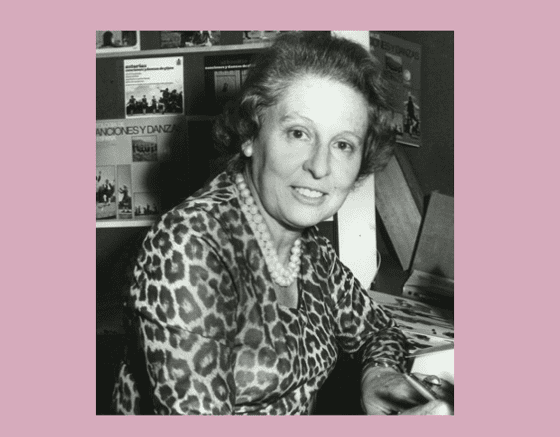Carmen Bravo-Villasante: An Intimate Gaze, an International Vision
Carmen Bravo-Villasante: una mirada íntima, una visión internacional
Coloquio en torno a la figura de Carmen Bravo-Villasante con motivo de la publicación de sus memorias, “Invención de la vida”.
El mes de marzo es una perfecta ocasión para recordar a las mujeres, muchas veces olvidadas, que forjaron la cultura y las raíces de quienes somos. Carmen Bravo-Villasante (Madrid 1918-1994) es una de ellas. Filóloga, folclorista, escritora y traductora, su espíritu ávido de conocimiento y sin fronteras fue fundamental para la literatura en España y para la consideración de la filología española a nivel internacional. En los años cincuenta y a través de Edith Helman, directora del Instituto Internacional, comenzó a dar clases al grupo de Smith College en Madrid que con sede en el Instituto Internacional, fue muy importante para el fortalecimiento de las relaciones culturales entre Estados Unidos y España. Esta labor la continuó como docente en otras instituciones americanas como Lake Forest College y Middlebury College. Recientemente, bajo el título “Invención de la vida” se han publicado sus memorias que habían permanecido inéditas durante décadas.
Recibió el Premio Nacional de Traducción Fray Luis de León en 1979 y el Premio Nacional de Literatura Infantil y Juvenil del Ministerio de Cultura en 1980, en su modalidad de investigación. Entre sus obras más conocidas figuran: “La mujer vestida de hombre en el teatro español del Siglo de Oro” (1955), “Historia de la literatura infantil española” (1959), “Antología de la literatura infantil en lengua española”(1962) y “Vida y obra de Emilia Pardo-Bazán” (1963). Fue miembro muy activo del Ateneo de Madrid y de diversas asociaciones nacionales e internacionales.
Presentación:
- Carmen Ruiz Bravo-Villasante, arabista, catedrática de la UAM, e hija de la autora
- Maria Jesús Fraga, doctora en Filología Española con estudios centrados en la literatura infantil
- Cristina Ruiz Fernández, periodista y nieta de la autora
Este evento gratuito se desarrollará en español.
Detalles del evento
- Fecha: 14 marzo, 2023
- Hora: 7:00 pm - 8:00 pm
-
El evento ha finalizado
El registro está cerrado, ya que el evento ha finalizado.

